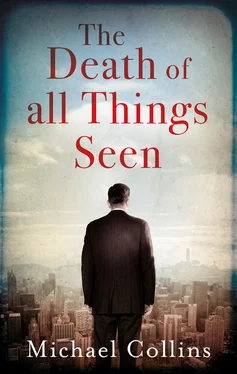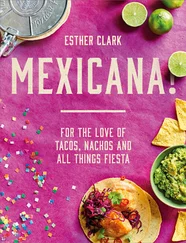She touched Nate’s face. She wanted, again, solace in a study of accumulated history, histories he conceived as important, factual, and literal, because there was a great difference between them, her and him, and for this she loved him.
He completed a part of the unknown world. A mixing of blood was never troublesome to her people. Women had a status and were sent along with the early settlers to help them with new discoveries, women left to fend for themselves amidst the spirited restlessness of men who had not experienced the company of women in months, if not in years.
It was managed somehow. Women were a miracle shared, and there was no shame in it. They could walk as far and carry as much as any man, and, in the taking of pleasure, they were not demur, or filled with anxiety, and they took as much as was given, and, in the morning, they resumed their place, and nothing was lost in the act, and the great measure of a woman was how long she could walk between resting, just the same as a man, no different out there in the wilderness.
She wanted to die in the solitude and isolation of a single love, in proximity of the roar of a fire and a view of the lake in the natural light of the season. She reached for his face. Her hands, near the end, a collection of sticks, like kindling, brittle and dry, the swan of her neck giving in a sudden keel and slump of gathering sleep when a minute before she had been talking, so he was made ready for a coming sleep that would not end.
In the day, to appease and remind her of their past, he would sometimes play the fool and dress in the early Elmer Fudd cap he wore on arrival in Grandshire, which Ursula said made the men laugh so hard behind his back, they pissed themselves, but it was a hat that made her yearn for him so much more because there was so much improvement needed about him, and innocence, too, and yet a depth of great knowledge and compassion.
He was the opposite of Frank Grey Eyes in so many ways — the one going, the other coming. She had found them both here at the edge of nothingness. How was she so lucky?
To the antecedent history of the newly discovered Basque, Nate added a history preserved in the Viking Sagas, the banishment of Eric the Red, a fierce and flaxen-headed warrior, who, along with his followers discovered Greenland. His son, Leif Erikson, pushing ever west, arrived eventually into the far reach of the north, making settlement briefly in a new-found-land, where a grape particular to the land grew. He called the place of new discovery, Vineland.
And somewhere into that mix, in the trawl of stories and interests, he came upon the feat in an open boat of a Celtic monastic named Brendan, who might or might not have reached the Americas.
Ursula said Brendan was a name she would have chosen for a boy. In her native way, she pronounced it Bring Dawn, so its essence was unlocked and understood better. A name meant something. She could unlock a history, a hidden meaning, in the way there were men who spent a life cracking open rocks, discovering a great and distant past.
In the approach of death, all she wanted to hear was the consoling voice of Nate. The business was sold with this in mind when her sickness was apparent and how it would end. She did not want to die with the phone ringing, with someone wanting something of her, checking on a backorder, or making complaint, someone demanding a refund. With her death, so would go much of his life. He was at ease with it.
Ursula eventually slipped from life in his arms in an absence felt more than anything ever gained.
THOMAS STRAIT’S DAUGHTER, Lee-Ann, was all rural good looks with three kids under twelve who had taken nothing from her figure and filled her just right. She got out of the front seat while the bus was stopped, presumably at the mild reproach of her father as she got into the back of the car.
Thomas Strait quietly advanced with a dignity and hitch to his step of someone who had marched in military formation. He raised his hand as he walked toward Norman, beaming a smile, his face unshaven. He had on a medical orderly’s smock, of a pale blue starched material, stiff as cardboard, his hair, a steel grey and thinning, combed off his forehead.
Thomas Strait drove a first generation Saturn, a car Norman immediately recognized, and commented on for a conversation opener. There were no formal introductions. Norman remembered what he called the ballyhoo of patriotic commercials, a factory somewhere south, if he rightly remembered, free of the shenanigans of the UAW. He talked a mile a minute, the Saturn, a company his father had touted as part of the rebirth of the American automobile on the right side of organized labor this time, though, in the end, for all the soft pitch, for all the happy employees smiling and waving, for all the American flags, it didn’t make a damn difference because the cars were crap and cheaply made.
Thomas said, ‘You remember Saturn. I’ll be damned if you are not enlightened! God knows we need every good idea that’s out there. The Saturn, I’ll be damned if you don’t remember it just so.’
There was the preacher in his voice and issues of salvation never far from his mind. Thomas took Norman’s box, set it in the trunk then he went round his side of the car.
Norman got in. All the warning lights on the dash were lit.
Lee-Ann was piled into the back of the car with her three kids, all shoulder-to-shoulder. Her knees showed, her dress pulled around her thighs showing the white of her panties. She wore no wedding ring. These boys were single-parented. It was self-evident. They had that watchful, wary look of protectors.
For lack of anything to say, Norman commented how well mannered they were, which led to the eldest punching the middle one. The youngest, Sherwood, had his eyes locked on Norman.
Thomas said quit it to the two older kids. He looked in the rear-view mirror.
‘Sherwood, you have something to show Mr Price?’
Norman was half-turned in his seat. He smiled encouragingly. ‘Something to show me?’
Thomas added, ‘In honor of your arrival, Mr Price!’
Sherwood was all giggles and shy at the same time, while Lee-Ann said impatiently, ‘Well, show him then, will you, go on!’
Sherwood said softly, ‘It’s a drawing for you, Mr Price!’
The picture was of a stick figure man and a round-bellied cat that was holding something in its paws that Norman couldn’t quite make out. They were framed, the man and the cat, in a window near the top of what was obviously the Sears Tower.
Thomas Strait ventured, ‘Where you live, Mr Price, right?’ so Norman feigned incredulity and, looking at the kid, said, ‘That’s exactly where I live.’
Thomas interjected. ‘Kenneth told Sherwood all about you being famous, Mr Price, and about Mr Whiskers, your cat, who rides the elevator all day long, pressing all the buttons, and how he opens cans of food with an electric can opener.’ He added parenthetically, ‘That’s how you were able to come visit, Mr Whiskers being self-sufficient and all. Sherwood was concerned about you coming down and the cat not having anything to eat. But you had it figured. Mr Whiskers is no ordinary cat, right, Mr Price?’
Norman played along. ‘Mr Whispers is a whiz with the can opener.’
Sherwood corrected Norman with an exuberant shout. ‘You mean, Mr Whiskers!’
He was giddy with a child’s glee, the car alive with his presence.
Thomas had his eyes again set in the rear-view mirror. ‘That’s Mr Price’s way of testing you.’ He lit a cigarette from the car’s lighter. He handed it back to Lee-Ann, then lit another for himself and said, ‘He got all As, Mr Price!’
The sudden sense of déjà vu struck Norman. He felt himself forming the words and let it happen, despite himself. ‘He’s a regular Little Lord Fauntleroy!’
Читать дальше












